[ad_1]
Towering over the Thames, with ‘panoramic views’ of the MI6 headquarters that featured in recent Bond films, the Riverwalk is one of London’s most sought-after addresses.
Residents of its apartments, which change hands from around £4 million, include singer Tom Jones and celebrity plumber Charlie Mullins, along with an array of financiers, business tycoons and ultra-rich foreigners.
They park their supercars in its underground garage, work out in an on-site gym, and instruct ‘concierges’ to carry out daily chores. Uniformed security guards are on hand around the clock to keep the riff-raff at bay.
Lately, however, scandal has sullied these perfumed corridors.
To the dismay of privacy-obsessed residents, the Riverwalk finds itself the backdrop to an extraordinary ‘whodunnit?’ with almost as many twists and turns as a 007 thriller.
At its centre is the death of Zac Brettler, a 19-year-old former public schoolboy whose grandfather, Rabbi Hugo Gryn, was a much-loved panellist on BBC Radio 4’s The Moral Maze.
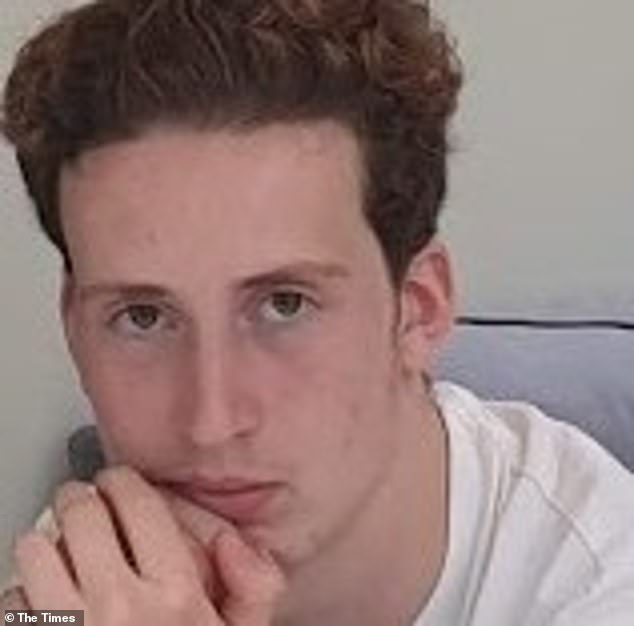
Zac Brettler, 19, died after leaping from a fifth-floor apartment at Riverwalk one Friday morning in November 2019. He had left school just five months earlier
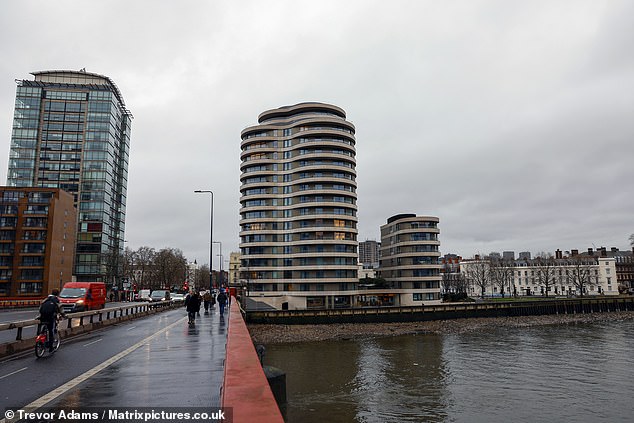
Towering over the Thames, with ‘panoramic views’ of the MI6 headquarters that featured in recent Bond films, the Riverwalk is one of London’s most sought-after addresses
Zac died after leaping from a fifth-floor apartment at Riverwalk one Friday morning in November 2019. He had left school just five months earlier.
His body was found on the foreshore at low tide by a passing jogger just before sunrise. His jaw had been broken, and he had suffered an injury to his hip. A paramedic’s report described him as ‘cold to the touch and extremely stiff’.
Grainy video footage of his final moments was captured on CCTV cameras at the spy HQ on the opposite bank of the Thames. It shows Zac had walked onto the balcony of a brightly-lit apartment, number 504, just after 2.20am on November 29.
He then appeared to climb onto a glass balustrade, walk up and down a few times, then jump in the direction of the river.
The big question is: why?
Police initially suspected either suicide or a tragic accident. But soon the plot thickened. For although there was no one else on the balcony, close examination of the CCTV footage revealed someone’s silhouette can be seen moving around the property at the time.
It turned out to belong to Dave Sharma, a notorious gangster and suspected drug kingpin nicknamed ‘Indian Dave’ who owned the multi-million-pound apartment.
He was one of two much older men Zac had spent the previous evening with. The other was Akbar Shamji, a Cambridge-educated businessman and chum of Sharma whose Tory-donor father, Abdul, was jailed for perjury in the late 1980s.
The colourful duo were arrested on suspicion of murder and taken for questioning at Charing Cross police station on December 5, just days after the teenager’s body was found.
Each vehemently denied wrongdoing, insisting that Zac was a dear friend who had been in the grip of heroin addiction. They speculated that he must have either committed suicide, or have suffered his fatal accident while attempting to sneak away from the property to purchase drugs.
Be that as it may, it wasn’t entirely clear why these two grown men, in their 50s and 40s respectively, had been hanging around with a young Jewish boy barely out of school.
What’s more, electronic evidence, along with footage from a range of CCTV cameras, soon proved that almost all of Sharma and Shamji’s initial claims about their movements that night had been untrue.
For example, Sharma had insisted he was asleep when Zac died, saying he had not woken up until 8am. In fact, he’d made a series of phone calls into the early hours.
Shamji, for his part, claimed to have left the apartment long before Zac jumped from the balcony and gone straight home to Mayfair. However, detectives discovered that he’d been called by Sharma while driving home, performed a U-turn, and returned to Riverwalk.
He then spent around 20 minutes in the apartment before descending to the ground floor and walking outside, where he was filmed peering into the Thames at the spot where Zac had hit the water.
When police asked why he’d gone there, he suggested he’d gone outside for a smoke, adding: ‘It’s a nice bit of river. I sometimes sit there.’
Asked to explain why their initial recollection of events had been false, Sharma refused to comment and Shamji said his memory was foggy.
By then, detectives had come across text and WhatsApp messages suggesting the duo’s relationship with Zac had gone seriously wrong in the run-up to the incident.
On the morning of Zac’s death, Sharma had, for example, messaged Shamji to say: ‘I’m thinking, f*** this little kid!’
And just hours before Zac jumped from the balcony, Shamji had texted a friend urging him to come to the apartment, saying: ‘I’ve just been heating up knives and cleaning up blood . . . sh**’s about to go wrong. Wrong!’
Police soon made a further curious discovery: in the months leading up to his death, Zac was living a bizarre double life pretending to be ‘Zac Ismailov’, the son of a Russian oligarch.
Using this alias, he’d attended a series of business meetings with Shamji in which he’d pretended to be looking for ways to invest an enormous family fortune.
Shamji, who denies wrongdoing, claims to have been unaware that his 19-year-old companion, who dressed like a character from the TV series McMafia, was actually living with his parents in a relatively modest flat in London’s Maida Vale.
Shamji later emigrated to the U.S. with his wife, Daniela Karnuts, founder of a high-fashion brand called Safiyaa whose £2,500 frocks have been worn by celebrities such as Meghan Markle and Michelle Obama.
He remains there to this day, and in November 2022 gave evidence via video link at Zac’s inquest, which recorded an open verdict.
Sharma, for his part, was found dead in apartment 504, apparently from a drug overdose in December 2020. Neither man was ever charged in relation to Zac’s death.
It is, all told, a highly unusual saga, which poses multiple unanswered questions. And which makes it all the more surprising that, for more than four years, the entire episode appears to have been kept under wraps.
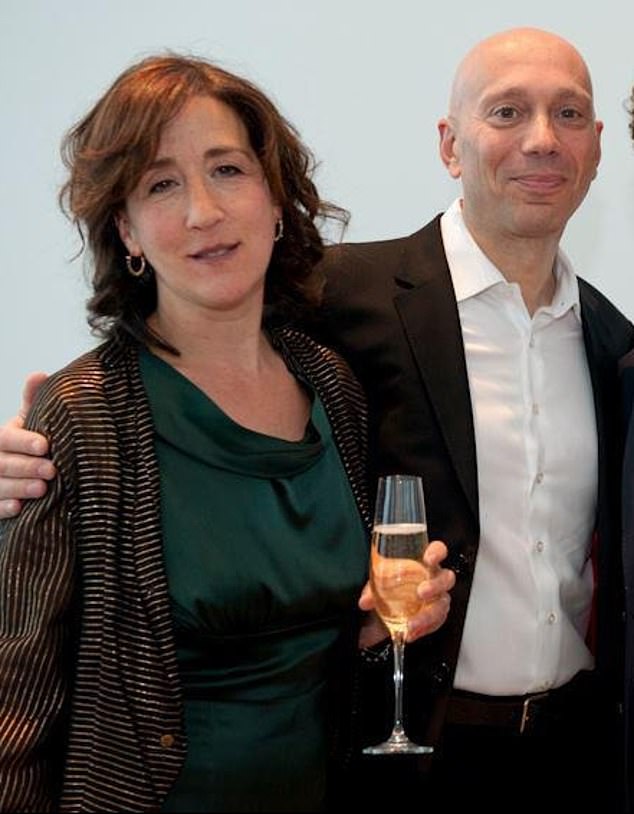
There were no tearful press conferences involving Zac’s parents — Rachelle, a journalist, and father Matthew Brettler, who works in finance (pictured)
Detectives chose not to issue any plea for information about either Zac’s final moments, or his bizarre Russian alter ego, in the weeks and months that followed the incident.
The coroner’s inquest went unreported. There were no tearful press conferences involving Zac’s parents — Matthew, who works in finance, and Rachelle, a journalist.
In fact, it wasn’t until this week that details of the case finally became public. Having apparently lost hope that police would ever get to the bottom of how Zac died, Matthew and Rachelle told their story to the New Yorker magazine.
They then issued an extraordinary condemnation of the police investigation, citing a series of alleged failings that they believe prevented those responsible for the incident from facing justice.
The couple, both 61, accused officers of ‘victim blaming’, arguing that police initially failed to follow up important leads because they’d chosen to believe that Zac took his own life.
They claimed that officers failed to interview a host of key witnesses and mishandled forensic evidence that would have helped establish who contributed to their son’s death.
‘We do not understand why the police, who have a ton of evidence, CCTV, texts, even phone calls, have failed to join the dots and failed to charge Sharma when he was alive,’ Matthew said. ‘It is as baffling to us as it is cruel.’
In an interview with The Times, he added: ‘The omissions are highly suggestive of a degree of incompetence that it’s very hard to get one’s head around. You think, surely they can’t be that bad.
‘My major criticism of the police is that there was no smoking gun and that then required them to do the hard yards in terms of detective work and they never showed a real appetite for it.’
To understand the couple’s anger, we must wind the clock back to Zac Brettler’s final months, when this privileged young man from an upper-middle-class family began associating with edgy underworld figures such as ‘Indian Dave’ Sharma.
Educated at Mill Hill, a £43,500-a-year public school in North London, where he began to board in his teens, Zac was a keen cricketer and gifted tennis player, who competed at county level for Middlesex.
However, as he entered Sixth Form, he also appears to have developed a fixation with extreme wealth, perhaps while rubbing shoulders with well-to-do classmates.
By his final year, when he transferred to Ashbourne College in Kensington — an upmarket ‘crammer’ popular with ultra-rich foreigners — he was wearing designer clothes, carrying schoolwork in a briefcase, and talking of business deals he was allegedly engaged in.
He’d registered a business at Companies House called Omega Stratton, which claimed to be involved in ‘security and commodity contracts dealing activities’.
Zac had also begun spending large amounts of time with Shamji, a wealthy businessman who lived on a flat in Mount Street, Mayfair. The duo had seemingly been first introduced by Mark Foley, a businessman he had encountered who worked as a property consultant for Chelsea Football Club, then owned by Roman Abramovich.
Intriguingly, both Foley and Shamji knew the boy as ‘Zac Ismailov’. The teenager constructed a bizarre backstory, claiming to be heir to a £205 million fortune, adding that following the recent death of his Russian oligarch father he was being blocked from receiving that inheritance by his Dubai-based mother.
Over the summer of 2019, Shamji and ‘Ismailov’ held meetings at which a number of business opportunities were discussed. They included a real-estate project in Lisbon, a mining investment in Kazakhstan, and the launch of a range of CBD-infused skincare products.
Most seemed to hinge on the possibility that ‘Ismailov’ would be able to finance at least part of the projects using his vast inheritance — that did not exist.
For his part, Shamji knows a fair bit about non-existent loot. In 1989, his Tory donor father, who once hosted Margaret Thatcher at the family home in Surrey, was found to have lied when he told the High Court he was unable to pay a business debt of £5 million.
Specifically, he claimed to have no Swiss bank accounts, when in fact he had five. Sentencing him to 15 months behind bars, the judge said he’d ‘lied like a trooper’.
We digress. At some point after Shamji met ‘Ismailov’, Dave Sharma came on the scene. This raised the stakes considerably.
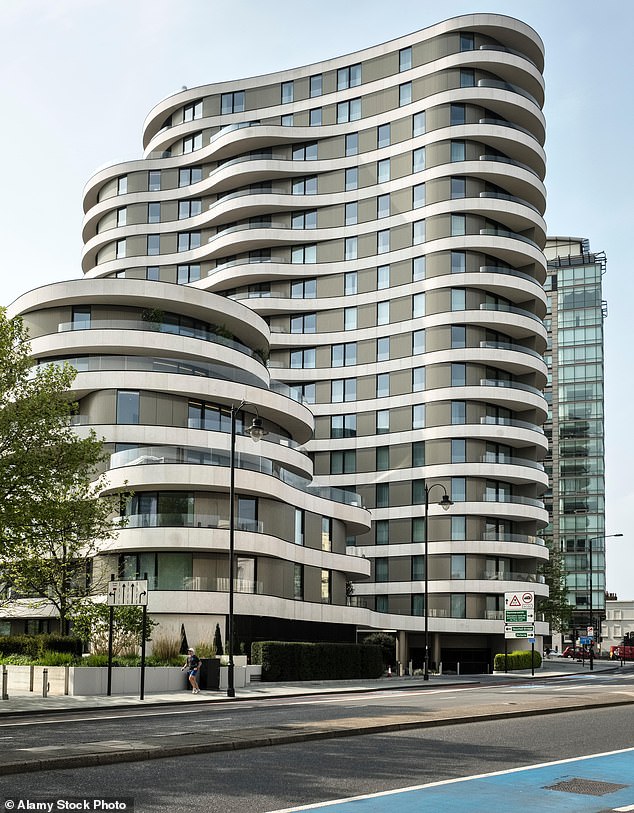
Notorious villain Dave Sharma allowed the 19-year-old to live rent-free at Riverwalk for several weeks
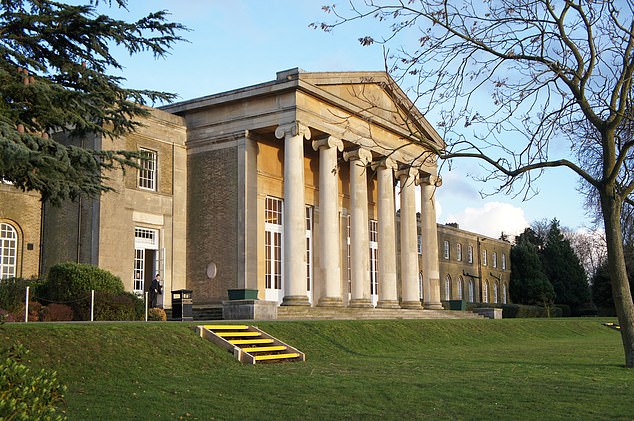
Zac was educated at Mill Hill, a £43,500-a-year public school in North London, where he began to board in his teens (the school pictured)
A notorious villain, Sharma had first come to public attention in 2002 after being part of a gang arrested in a heroin bust. One member, a bodyguard turned nightclub owner called Dave ‘Muscles’ King, ended up avoiding prosecution. Before several witnesses, in open court, Sharma had angrily accused King of being a ‘grass’.
The following year, King was murdered in a drive-by shooting outside a gym in Hertfortshire. The gunman and his driver were arrested.
When their case came to trial, it emerged that moments after pulling the trigger, the assassin had used a mobile phone to call Sharma, who was by then living in France.
The judge, who gave both men a life sentence, said the crime, the first in which an AK-47 was used to murder someone in England, was ‘thoroughly planned and ruthlessly executed’.
By 2019, Sharma had long since returned to the UK, where he’d somehow acquired sufficient funds to purchase the flat at Riverwalk.
Among his criminal enterprises, he appears to have also been working as a debt collector, with a reputation for unbridled physical intimidation. As the New Yorker article puts it: ‘stories circulated about Indian Dave hunting down people who owed money and dangling them off rooftops’.
After being introduced to ‘Ismailov’, Sharma appears to have believed he could help secure the supposed £205 million fortune — in return for a substantial cut. He may also have hoped to use some of ‘Ismailov’s’ cash to finance his underworld business deals.
As a result, Sharma allowed the 19-year-old to live rent-free at Riverwalk for several weeks. He and Shamji provided him with free meals, drove him in luxury cars, and devoted significant time to negotiating potential investments. It seems they believed their investment of time and money in Zac would generate significant returns.
The problem, of course, was that his £205 million fortune didn’t exist. And the fact appears to have gradually begun to dawn on them by early November.
It’s unclear what exactly brought things to a head, but two days prior to his death, Zac told a friend he was in danger and somebody was threatening his family.
It later emerged that he’d used Google to search for ‘witness protection UK’ that day. At 4pm on November 28, Sharma messaged Shamji saying, ‘He’s not allowed to runaway now, he’s in [too deep] with us.’
That evening, Zac was driven to Riverwalk by Shamji in a red Audi shortly after 9am. At around 1.25am, Shamji left Zac alone in the flat with Sharma.
What happened next has never been fully established. However, there is evidence that Sharma either assaulted or even tortured the young man.
At 2am, Zac’s iPad was used to search for ‘what to do with skin burns’. His jaw may have been broken at around the same time.
At 2.12am, Sharma telephoned Shamji for nine minutes, after which he turned his car around and drove back to Riverwalk. Five minutes later, Zac leapt to his death.
Then, at 2.34am, Shamji returned to the apartment for 20 minutes before going downstairs and peering into the river.
Zac’s parents this week highlighted several apparent shortcomings in the subsequent police investigation.
When detectives searched the Riverwalk apartment a week later, they discovered smears of blood in a bedroom and on a sink, but failed to forensically test them.
They never bothered to interview either Mark Foley or Shamji’s wife, designer Daniela Karnuts, who had supposedly met him at the door when he eventually arrived home in Mount Street. Sharma’s chauffeur who, for reasons that are unclear, was sent to the flat where Zac lived with his parents in Maida Vale on the morning after he died, was never interviewed either.
Although Sharma died before he could be prosecuted, police did pass a file on Shamji to the CPS. But they decided not to prosecute him for perverting the course of justice.
Shamji, who appears now to work in cryptocurrency in the U.S., told the inquest that he ‘wasn’t a chief protagonist’ in Zac’s demise.
Although the coroner found that Shamji knew the young man had jumped off the balcony when he returned to Riverwalk, and that he was ‘looking for Zac’ when he wandered outside, Shamji continues to deny wrongdoing.
The police, meanwhile, have offered ‘condolences’ but insist their investigation was competently handled. ‘The case was also reviewed by specialist homicide detectives to ensure every line of enquiry had been exhausted,’ they said this week.
‘Any new information will be examined on its own merit by a team led by experienced detectives.’
Zac’s parents, for their part, take the view he jumped from the balcony in order to escape danger, having been rumbled as an imposter.
They point out there is no evidence he was suicidal, noting that he’d applied for a provisional driver’s licence on the evening of his death, and had been making other long-term plans.
Neither was he a heroin addict: no drugs were found in his body, and a test, carried out surreptitiously by a family physician a few months earlier, came back negative.
‘Our best guess,’ said his father, ‘is that Zac, a bit bored with his lovely, stable home life was seeking adventure . . . The terrible thing is, he got in with the wrong people and he got in way too deep.’
The real secrets of what happened at the Riverwalk that night have, sadly, been taken to his grave.
[ad_2]






